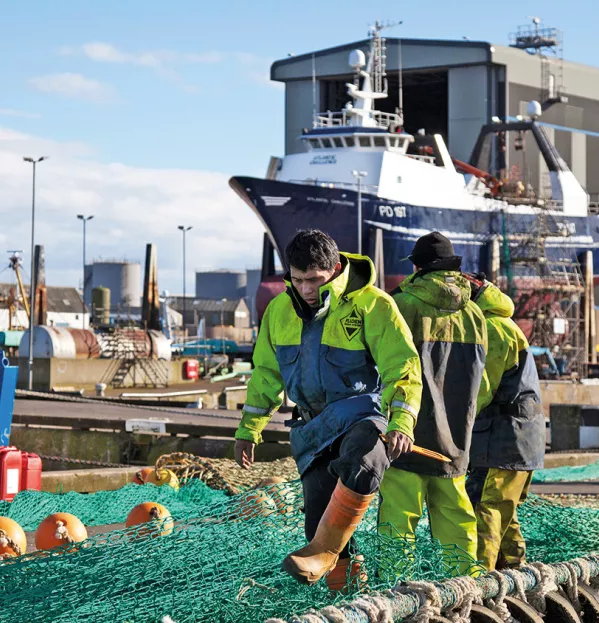‘We must reboot our skills system for leaving the EU’

The Scottish skills system should be reviewed in light of Brexit, two former SNP MPs have said. In the report Brexit and Scottish Business: leader views, Michelle Thomson and Roger Mullin conclude that a restriction of free movement - one of the likely consequences of Brexit - may demand an overhaul of skills policies.
The interim report, which will be followed by a full version early in the new year and is based on interviews with business leaders, says that Scotland’s colleges and universities have “considerable concerns about the loss of key staff and EU funding”. It adds: “However, we anticipate they will have a key role in the development of updated skills policies in the wake of Brexit and in supporting businesses.”
Speaking exclusively to Tes Scotland, Mr Mullin said: “We need a review of the entire skills strategy. Maybe this was required anyway, but the system will be affected by the change created by leaving the EU, and that makes it a bigger issue.
“We are going to be restricted in how we can recruit people and we need to be stronger at innovation, reskilling our workforce.”
‘Serious issues’
The former SNP Treasury spokesman, who was an MP from 2015-17, added: “There are also serious sectoral issues. The most obvious one is in the tourist sector. There is a general risk for skills, but there is also a sectoral and geographic risk - especially in areas like the Highlands.
“I don’t get the impression that government has been looking at this as much as it should have. Some businesses could be losing as much as 40 per cent of their workforce.” Mr Mullin, an honorary professor at the University of Stirling who - before serving as an MP - was an adviser on post-16 educational reform, explained that people are now “coming to the recognition that they have been able to meet demands because of free movement, especially at higher and intermediate skills level”.
He said: “The end of free movement will lead to short-term problems, but what we need to do is to try and have a better skills strategy. It is going to become more difficult to recruit European nationals, in particular.”
Mr Mullin added that business leaders had stressed that regardless of one’s views on Britain leaving the EU, it would create “economic turbulence”. This week, Tes Scotland also reports on separate research that suggests many skilled young Eastern Europeans who have grown up in the UK are considering leaving, amid fears that racism is more prevalent following last year’s referendum.
“Successful businesses can innovate - you need to get the right skills for that,” said Mr Mullin. “A number of people said to us that what we need to do is take a strong look at the way in which we upskill our workforce.”
‘More flexibility’
Business leaders have also raised concerns about the lack of flexibility in modern apprenticeships. “We need more flexibility there, especially in some sectors like the financial sector and some parts of the IT and science sectors,” said Mr Mullin.
Businesses have said that taking on apprentices is too complicated in their sector, with the qualifications too closely linked to specific apprenticeship levels.
City of Glasgow College principal and chief executive Paul Little said that “we are now entering a new era of technical and professional education, and this report identifies the pivotal role colleges play in delivering that”. He added that it was “more important than ever that any future, post-Brexit skills strategy focuses on innovation - developing not just the young but also our older workforce”.
A spokeswoman for the Scottish government said: “Access to workers, of all skill levels, is critical to Scotland’s labour market. Loss of Single Market membership, and associated free movement of people, will limit our labour pool and impact on our economic growth. That is why a differentiated solution to immigration for Scotland is necessary and why remaining part of the Single Market remains our priority.”
You need a Tes subscription to read this article
Subscribe now to read this article and get other subscriber-only content:
- Unlimited access to all Tes magazine content
- Exclusive subscriber-only stories
- Award-winning email newsletters
Already a subscriber? Log in
You need a subscription to read this article
Subscribe now to read this article and get other subscriber-only content, including:
- Unlimited access to all Tes magazine content
- Exclusive subscriber-only stories
- Award-winning email newsletters